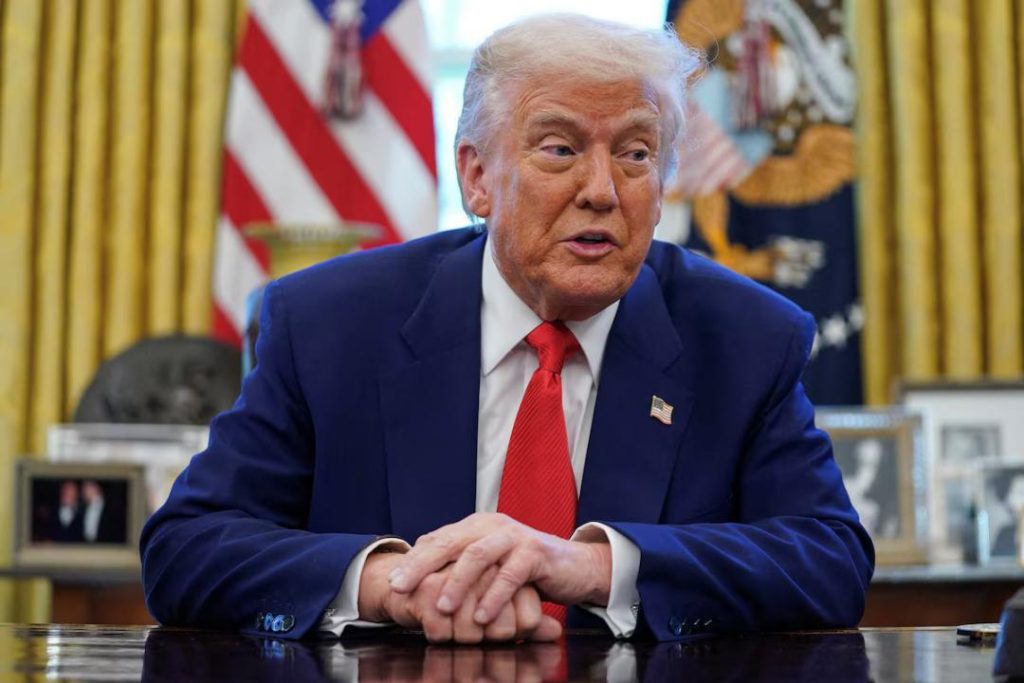
Total Reset Negotiated: Donald Trump on US & China Trade Talks
The highly anticipated trade talks between the United States and China have finally taken place, and the outcome is nothing short of remarkable. In a recent press conference, US President Donald Trump revealed that the negotiations went exceptionally well, with both parties agreeing to a “total reset” in their trade relationship. The talks, which took place in Geneva, Switzerland, marked a significant milestone in the ongoing trade war between the two economic giants.
According to Trump, the reset negotiated in the talks will pave the way for a more constructive and friendly relationship between the US and China. The US President emphasized that the agreement is a win-win for both countries, with the potential to open up new opportunities for American businesses in China. Trump’s optimism was evident throughout the press conference, as he highlighted the progress made in the talks and expressed his confidence in the future of the US-China trade relationship.
So, what exactly did the US and China agree to in the Geneva talks? While the details are still being finalized, Trump provided some insight into the key points of the agreement. According to the US President, the talks focused on several key areas, including intellectual property, technology transfer, and agricultural trade.
One of the most significant areas of agreement was on intellectual property protection. The US has long accused China of stealing American intellectual property, and the Geneva talks marked a significant step towards resolving this issue. Trump stated that China has agreed to take concrete steps to protect American intellectual property, including cracking down on piracy and counterfeiting.
Another key area of agreement was on technology transfer. The US has accused China of forcing American companies to transfer their technology to Chinese partners as a condition of doing business in the country. In the Geneva talks, China agreed to reform its technology transfer policies, making it easier for American companies to operate in the country without having to surrender their valuable intellectual property.
Agricultural trade was also a key area of discussion in the Geneva talks. The US has long been concerned about China’s restrictions on American agricultural products, which has limited exports and hurt American farmers. In the talks, China agreed to increase its imports of American agricultural products, including soybeans, pork, and other commodities.
While the details of the agreement are still being finalized, Trump’s optimism is palpable. The US President has long been critical of China’s trade practices, but he seems to be satisfied with the progress made in the Geneva talks. In his press conference, Trump stated, “We want to see, for the good of both China and the US, an opening up of China to American business.” This sentiment is likely to be music to the ears of American businesses, which have long struggled to operate in China due to restrictive trade practices.
But what does the agreement mean for American businesses, and how will it impact the US-China trade relationship? To answer these questions, it’s necessary to take a step back and consider the broader context of the US-China trade war.
The US-China trade war, which began in 2018, has had a significant impact on the global economy. The trade war has led to tariffs on billions of dollars’ worth of goods, causing prices to rise and global trade to slow. The war has also led to a decline in US-China relations, with tensions running high on issues such as intellectual property theft, technology transfer, and human rights.
Despite the challenges posed by the trade war, American businesses have continued to see China as an attractive market for expansion. China’s large and growing middle class, combined with its strategic location in Asia, make it an important destination for American companies looking to expand their global reach.
However, the trade war has also created significant challenges for American businesses operating in China. The tariffs imposed by the US on Chinese goods have increased costs for American companies, while the Chinese government’s restrictive trade practices have limited their ability to operate in the country.
The agreement negotiated in the Geneva talks aims to address these challenges by creating a more level playing field for American businesses in China. By cracking down on intellectual property theft and technology transfer, China is sending a strong signal that it is committed to protecting American businesses and creating a more attractive environment for foreign investment.
In conclusion, the total reset negotiated in the US-China trade talks is a significant step forward in the ongoing trade war between the two countries. The agreement addresses key areas of concern, including intellectual property protection, technology transfer, and agricultural trade. While the details of the agreement are still being finalized, Trump’s optimism is palpable, and American businesses are likely to benefit from the increased access to the Chinese market.
As the US-China trade relationship continues to evolve, it will be important to monitor the progress made in implementing the agreement. Will China follow through on its commitments, and will the US be able to successfully negotiate further agreements to address remaining trade issues?
Only time will tell, but for now, the total reset negotiated in the Geneva talks is a significant step forward in the US-China trade relationship.
Source:
https://www.reuters.com/world/china/china-us-trade-talks-begin-geneva-2025-05-10/






